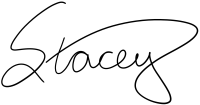Book Review: Loving What Is
by Byron Katie

31 March 2020 | Theme: Letting Go | 7-Minute Read | Listen
“We shouldn’t be going through this right now. I should be back at work/school/college/the beach…”
Do you find yourself saying and hearing statements like these? It’s an incredibly surreal time in history as social distancing has become the new norm across the globe—not all at the same time, mind you, which makes it even stranger, in a way. It’s as if we were all in a B movie or quirky sci-fi novel, and yet…it’s real.
How do we stop suffering in a time when so much is uncertain—when we fear what will happen to our health, our livelihoods, and our futures?
Author Byron Katie would answer, “I have never experienced a stressful feeling that wasn’t caused by attaching to an untrue thought.” It isn’t the reality of the coronavirus that causes suffering—it’s the way we think about it that is stressful.
Throughout her book Loving What Is: Four Questions That Can Change Your Life, Katie demonstrates a process she calls The Work. It’s a way of meeting reality by letting go of the thoughts we have that are contrary to reality. Once we can see reality clearly, then we are free to move to change the reality or adapt to it in new and innovative ways. But as long as we are stuck in our beliefs, we suffer.
The process, in a nutshell: make your statement, write it down, ask four questions, turn it around. To demonstrate her process, I’ll start with a simple statement about something that’s far less emotionally charged than COVID-19: My kids should pick up their socks.
Write it down and then begin to apply the four-question Inquiry to that statement. First question: Is it true? Your answer may be, “Well, yeah, of course they should pick up their socks!” But do they? If they don’t pick up their socks, where does “they should pick up their socks” come from? It’s simply a thought! And it’s a thought that contradicts the reality of what is happening, so no, the statement “My kids should pick up their socks” is not true!
If you stick to answering question one with a yes, question two asks again, “Can you absolutely know that it’s true?” Answer with a simple yes or no—without qualifying your answer with “Yes, but…” or “Maybe…”
The third question Katie asks is, “How do you react, what happens, when you believe that thought?” So in our socks example, perhaps a response would be, “I get angry. I feel imposed upon, and I yell at the kids to pick up their socks.”
Finally, Katie asks, “Who or what would you be without the thought?” She stresses over and over that she isn’t asking you to give up the thought—you couldn’t even if you tried—but to consider what it might be like without the thought. “It would be more peaceful. My kids wouldn’t be afraid because I’m yelling at them. And maybe there’d be socks on the floor, or maybe not. Maybe they’d pick them up anyway.”
After putting the statement through the four questions of Inquiry, we then turn the thought around. Instead of “My kids should pick up their socks,” maybe it’s “I should pick up the socks.” Is that as true or truer than the original statement? Now that we’ve inquired and realized how much more peaceful life would be without the thought that the kids should behave in a certain way, perhaps we see that if we want the floor to be clear of socks, we do it ourselves—gently and lovingly, without resenting the kids, because now we aren’t thinking that they should do it.
Through The Work, we learn to love things and people as they are, rather than expecting them to be some other way. At the end of the process, Katie has us looking forward to the next time the socks are on the floor so that we can practice how different it feels in our bodies to have let go of the thought that the kids should pick them up.
It’s a simple and straightforward method of letting go of that which causes suffering. To be more precise, we don’t have to let go of the thought; when we have done The Work, the thought lets go of us.
In the present pandemic, I think asking ourselves the questions of Inquiry could be incredibly helpful. Is it true that we should be somewhere else right now? No, because we are where we are. The reality is that we are in a pandemic; if that is what’s happening, that’s what should be happening.
How do you feel when you think the thought, “This shouldn’t be happening”? Are you fearful? Restless? Unfocused? In a fog? Irritable? What happens in your body? How do you treat others? Next, what would it be like if you couldn’t think the thought that the pandemic shouldn’t be happening? If you accepted it as What Is?
Finally, try turning it around. “The coronavirus pandemic should be happening.” In what ways is this as true or truer than the original statement? We’ve seen pictures and footage of skies that are clearing from pollution. Birds can be heard singing. We are all learning new ways to connect with each other and respond to change in ways we never would have imagined before.
The Work doesn’t ask us to don rose-colored glasses and pretend that everything is just fine as it is—quite the opposite! It allows us to experience peace, even as we are better able to find the clarity and energy to act.
I’ve tried The Work myself, and have found that it has given me the ability to allow a thought to let me go. Those thoughts can be tyrants, and I can act like a tyrant when I believe them! But they are just thoughts. When I do The Work, I can see that the stories I’ve made up about things is the real source of my suffering.
Katie’s book Loving What Is goes into far more depth, of course, and uses many, many examples of Katie sitting with clients and walking through The Work with them. Through these examples, the reader discovers how the simple but powerful process allows us to love what is, just as it is.
Loving What Is is available as an audiobook on Audible, as well as on Amazon in paperback. (I love to support small, independent book sellers, but many are currently closed…) You can also find free, downloadable worksheets at TheWork.com, and Byron Katie will lead you through Inquiry right there on her website! In fact, you could spend hours on her website exploring The Work and witnessing others doing The Work with Katie—I highly recommend that you do.
Loving What Is can revolutionize the way you look at relationships, work, anxiety, and stress. The Work Katie describes in her book can bring you joy. May you, Dear Reader, be healthy. May you find freedom from your thoughts. May you make peace with What Is. May you have joy.
Until next time,

Resources:
Katie, Byron. Loving What Is: Four Questions That Can Change Your Life. New York: Harmony Books, 2002.
If you enjoyed this article,
please share on social media!
NEXT ARTICLE

Liminality
10 April | Theme: Change | 7-Minute Read